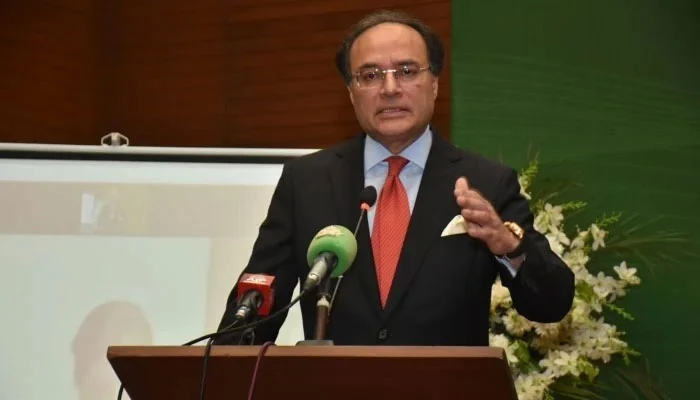Islamabad, March 21: On Friday, Finance Minister Muhammad Aurangzeb referred to climate change as an “existential threat” that could undermine the government’s efforts to achieve its economic sustainability objectives.
Aurangzeb made these comments during his address at a high-level event organized by the Ministry of Climate Change & Environmental Coordination in celebration of World Day of Glaciers.
He highlighted the government’s ongoing efforts to turn around the economy, including structural reforms, and expressed confidence that these measures would place the country’s economy in a strong position.
He added that while Pakistan has already attained macroeconomic stability, the country’s economic growth prospects could not be sustained unless the threat of climate change is effectively managed.
Despite contributing less than 1% of global greenhouse gas emissions, Pakistan is ranked among the top 10 nations most vulnerable to climate change.
According to the Economic Survey of Pakistan 2024-25, the country faces severe consequences due to unpredictable weather patterns, which lead to flash floods, droughts, glacial lake outbursts, intense heatwaves, and erratic rainfall.
Read More: Climate Change Disrupts Tourism in Kaghan Valley
Climate Change A Threat: Nationally Determined Contributions (NDCs)
In his speech, Aurangzeb mentioned that the government has already laid the groundwork with initiatives such as the Nationally Determined Contributions (NDCs), the National Adaptation Plan, and the national climate finance strategy rolled out in Baku.
However, he acknowledged that significant gaps still exist in terms of climate finance for Pakistan.
He expressed that while progress is being made, much work remains to be done to bridge the financing shortfall.
He also praised the World Bank Group for its support through the 10-year Country Partnership Framework, which focuses on climate change in two out of its six key areas.
Also Read: Sherry Rehman Calls for National Unity to Combat Climate Change
Aurangzeb further emphasized the alarming situation of Pakistan’s glacial lakes, noting that the country is home to over 3,000 such lakes, with 33 of them being highly unstable.
He pointed out that these volatile lakes pose a serious risk to the lives of at least 7 million people, highlighting the urgent need for action to address these environmental threats.









